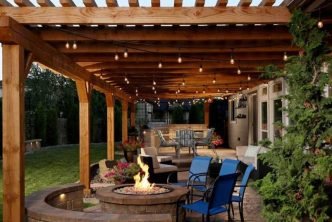Whether it’s a brand-new property, a condo nestled in a well-maintained community, or a charming fixer-upper, homeownership sparks a desire for home improvements—or, at the very least, requires vital repairs and upkeep.
Consistent home maintenance is paramount to sidestep hefty repair bills or the need to offer your home at a drastic markdown. Even after refurbishments, many properties could have fetched a higher price tag with a potential retail buyer if only the homeowner prioritized routine upkeep. However, even the most diligent homeowners occasionally overlook crucial aspects when budgeting for home repairs. This article discusses the commonly forgotten elements in your home repair cost estimation.
Table of Contents
1. Strategic Planning
Jumping into home repairs without a clear plan can lead to headaches. It’s crucial to think about the main points—how much it’ll cost, how long it’ll take, what materials you’ll need, and what you want the end result to look like—before you start. Changing your mind in the middle of a project, like deciding to move the fridge to a different spot or picking a different tile, can cost more than you’d think. Use planning tools to help you see your ideas, and remember to add a little extra (about 10-15%) to your budget and time estimate. This gives you some wiggle room for unexpected changes or problems.
2. Understanding Real Timeframes
Renovations often take longer than you think. Planning for possible delays is necessary for you to feel relaxed and satisfied. For example, while removing old fixtures might be quick, getting the new ones set up could stretch for weeks. Setting realistic expectations and being flexible with your renovation schedule is always a good idea.
3. Thinking of Smart Ways to Pay for Your Renovations
Paying for home improvements can be tricky since they often don’t make money back immediately. If paying for your home in full with cash isn’t feasible, it’s essential to understand the various financing options available that won’t compromise your home’s security. Being aware of tax breaks for repairs or improvements can also mean potential savings come tax season. Plus, if you’re currently paying for private mortgage insurance, boosting your home’s value through improvements might allow you to cut that extra cost. Even if it doesn’t directly fund your project, it can help lower overall housing costs.
4. Keeping a Detailed Record of Everything
A mistake often made by homeowners, whether they’re updating their living room or getting a garage door repair in Blackfalds, is neglecting to document the daily progress of their projects. Regardless of your initial budget, it’s vital to note down all details—from the quantity of materials used and the number of workers on site to daily expenses and the pace of the renovation. Failing to monitor these aspects can leave room for potential theft and unexpected expenses.
5. Recognizing the Value of Caulking
If you’re seeking a simple measure to save on potential future repairs, don’t underestimate the power of caulking. This simple sealant protects your home from water damage at its most susceptible points. Making it a routine, perhaps once or twice a year, to inspect the state of the caulking is beneficial. Examine areas like windows, sinks, bathtubs, and other potential leak points for signs of wear, such as cracks, bubbles, or gaps. Even if you spot minor issues, while they might not require immediate action, monitoring those areas to catch any emerging leaks is wise.
6. Refreshing the Paint
A little touch-up on your paint can make a huge difference, whether it’s for addressing blemishes on indoor walls, covering up water stains, or sprucing up areas around doorways. The trick to ensuring your fresh paint doesn’t stand out against the old is to dab or “stipple” the colour rather than using sweeping brush strokes. This method helps the new paint blend seamlessly with the old one once it dries. If you’re dealing with chipping paint, starting with a primer is a good idea, suitable for inside and outside areas.
7. Revamping Your Doors
One of the simplest yet most transformative upgrades you can make to your home is changing the hardware on your doors. This minor tweak can offer a refreshed look without straining your budget. Hardware elements, like handles and door knobs, play a subtle but significant role in influencing the overall ambiance of a space. If these fixtures look dated or worn out, they can unintentionally age your home, making it appear older. This seemingly small detail can influence potential buyers ‘ perceptions, especially if you’re considering putting your house on the market soon.
8. Checking and Changing Your Air Filters
At first glance, inspecting and changing air filters might seem too basic even to be considered a repair task. Yet, it’s precisely this simplicity that often leads to it being overlooked. Air filters play a vital role in ensuring your HVAC system isn’t continually drawing in harmful particles from the environment. Over time, these particles clog up the filter, making your system work harder to circulate air.
Identify where your air filter is located and periodically inspect it for dirt buildup. If you find it’s densely packed with debris, head to your local hardware store and pick up a replacement. Investing a little now can prevent more expensive HVAC issues down the road. If you notice any heating irregularities, especially before considering a furnace repair in Richmond Hill, check your air filter. A blocked filter often causes such problems, making your entire system strain to maintain optimal airflow.
9. Relying on Professionals
Home makeover shows have sparked a DIY trend, inspiring many to tackle renovations. While DIY can be fun and cost-effective for some tasks, knowing when to call in experts is crucial. Mistakes in complex projects can be costly and unsafe and might even render your home non-compliant with regulations.
While some tasks are DIY-friendly, others demand professional knowledge. Here are areas where expertise is essential:
- Electrical tasks
- In-depth basement projects
- Plumbing challenges, especially something like septic repair in Tottenham
- Structural changes
- Gas appliance maintenance
10. Choosing the Right Contractor
Selecting the right contractor is as crucial as choosing a trustworthy dentist or therapist. There are countless tales of homeowners falling victim to scams or receiving subpar work, requiring them to shell out even more to correct the errors. Ensure you thoroughly research and vet potential contractors to avoid such pitfalls.





